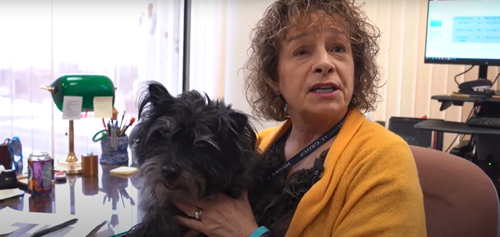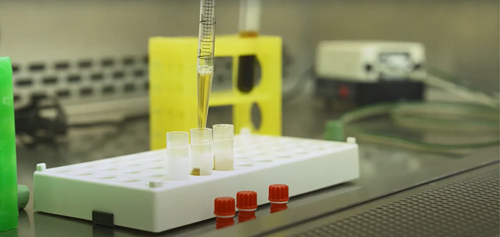Study resources
What you need to know
This section provides background information about our Mom and Baby Research Studies: Asthma and Allergies and what to expect when you volunteer to participate in a research study. Here, you’ll find answers to frequently asked questions about the studies and also suggestions for where to find more information. Visit the information below for specific study updates.
Why Do People Get Asthma and Allergies?
Experiencing asthma, allergies and everyday exposures during pregnancy may affect your newborn. Research shows that early life food allergies may mean the development of asthma for a child. Matthew Jackson interviews some key asthma and allergy leaders at Henry Ford Health System and shares common questions pregnant moms may have. Also learn how to participate in CAAIR (The Center for Allergy and Asthma Immunology Research), our mom and baby research studies program.
What Happens to Your Samples When You Join a Research Study?
Have you ever wondered what happens to your samples when you participate in one of our Research studies? Matthew Jackson gives us a backstage look at what happens to samples of those who participate in CAAIR (The Center for Allergy and Asthma Immunology Research) our Mom and Baby Studies.
Latoya Jackson shares her research study experience
Matthew Jackson sits down with Latoya Jackson as she shares her experience with participating in the asthma and allergies study. Ms. Jackson was inspired to join for her baby and all others in the future.
Asthma: If you or your child has asthma, you know how scary it can be when you can't catch your breath. Asthma is a long-term problem, but it doesn't have to limit you. Learning all you can about asthma is the first step to living the life you want, and our asthma topics are here to help.
Allergies: If you are like a lot of people, you are allergic to something. For most people, allergies mean itchy eyes and a drippy nose. But for a few people, allergies to things like bee stings or nuts cause a whole-body reaction that can be life-threatening.
-
CANOE
In addition to sharing data and samples among Children’s Respiratory Environmental Workgroup (CREW) consortium (12 individual U.S. birth cohort sites), CANOE data and samples will also be shared with the larger Environmental Influences on Child Health Outcomes (ECHO) program (www.echochildren.org).
ECHO is made up of multiple NIH studies in about 200 locations in the U.S. It is expected that ECHO will have a total study population of about 50,000 children and their families.
-
REACH/STARMore information coming soon.
.svg?iar=0&hash=F6049510E33E4E6D8196C26CCC0A64A4)

/hfh-logo-main--white.svg?iar=0&hash=ED491CBFADFB7670FAE94559C98D7798)


